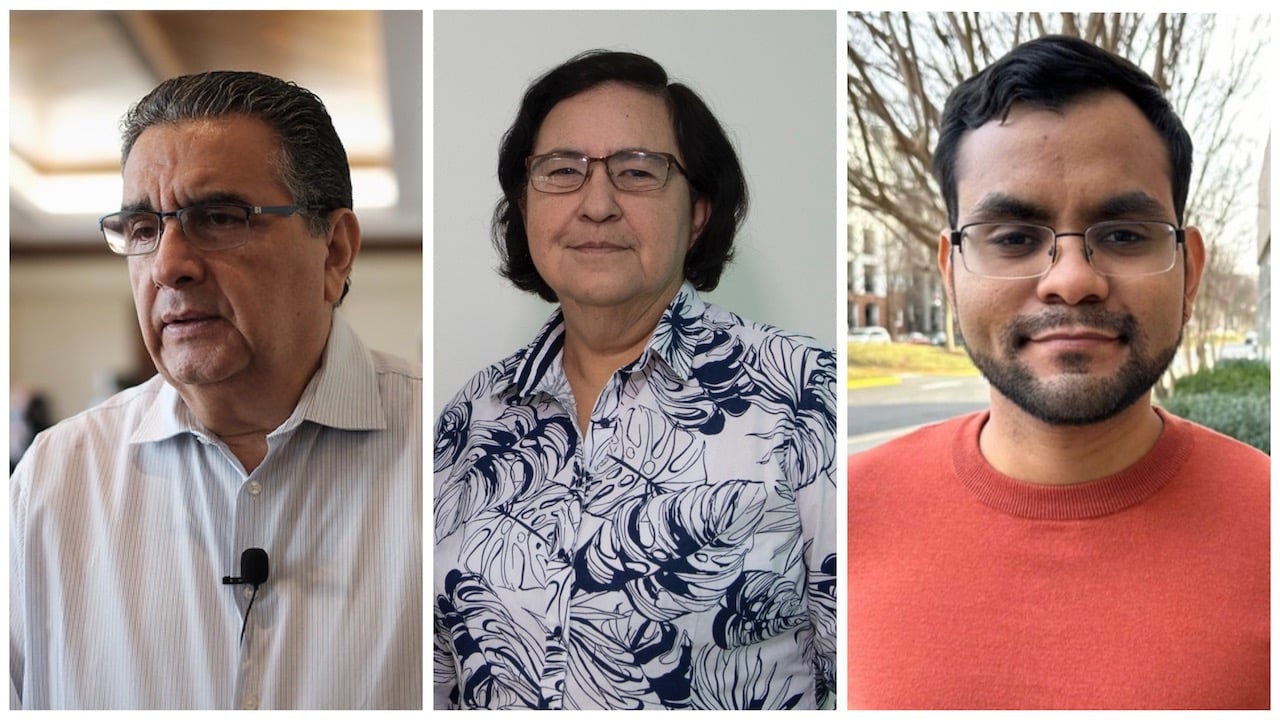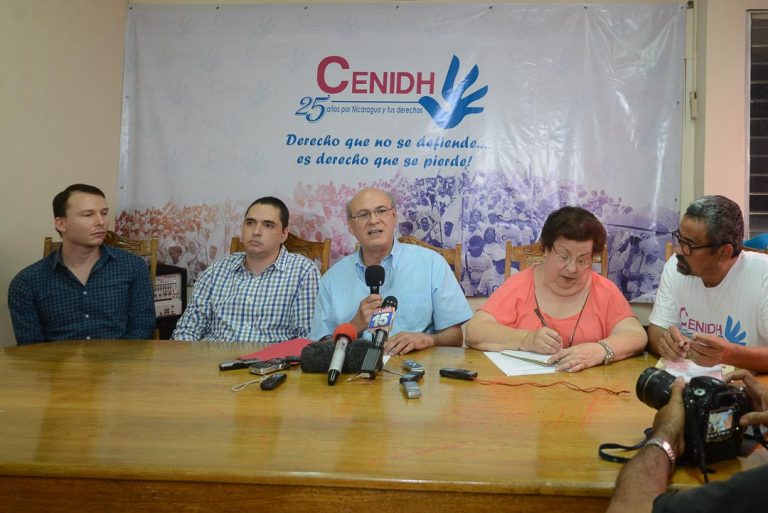12 de octubre 2016

Dialogue and Elections: “The Peaceful Way Out of the Dictatorship”

PUBLICIDAD 1M
PUBLICIDAD 4D
PUBLICIDAD 5D
Carlos Fernando Chamorro: the Constitution forbids the Army from practicing political espionage

Carlos Fernando Chamorro and Confidential team members in the CENIDH. Carlos Herrera/Confidencial.
Carlos Fernando Chamorro, the director of Confidencial, denounced on Friday october 7th, acts of intimidation and political espionage carried out by Nicaraguan Army officials and the Sandinista FSLN party. He lodged his complaint with the Nicaraguan Center for Human Rights (CENIDH).
Chamorro explained how two Confidencial workers - one from administrative affairs, and other in the technical department - were approached on separate occasions by a Nicaraguan Army officials and FSLN party operatives, in order to try and get information about how this independent news outlet works, as well as its computer security information.
“In a great act of civility and integrity, both Confidencial employees, outright rejected the offers made by government agents, not caving in to their intimidation tactics. They refused to provide information for them, via illegal and immoral means,” Chamorro stated.
CENIDH’s president, Vilma Nunez, and Gonzalo Carrion, its legal director, accompanied the journalist, who also stated that he wouldn’t file any kind of formal report with the Nicaraguan Police and the Army. “In the police force, there are officials and frameworks capable of investigating and clearing up these events, however, they lack autonomy, as this institution is controlled by the political orders that come down from above,” he explained.
The journalist recalled a similar case in 2013, when he complained to the head of the army about an intimidation and espionage campaign against Confidencial’s journalist Ismael Lopez, executed by officials from the Defense Information Direction (DID). However, the institution refused to investigate, claiming that they “don’t carry out acts of political espionage,” which is forbidden by the National Constitution.
“CENIDH’s experience makes us aware that in Nicaragua, impunity has been established as a feature of the justice system. There’s no way to carry out an investigation, there’s no way that the government will ever assume its responsibility,” noted Vilma Nunez.
The new report specifies that on September 20th, a Confidencal employee from the administration team was summoned via an acquaintance to meet in a public place with two people named Rafael Moreno and Ramon Abarca, in order to talk about an alleged job opportunity.
Moreno explained to the employee that they needed information about this media platform, claiming that Confidencial “was causing harm to FSLN activities during their electoral campaign.”
Among other things, the FSLN operatives demanded information about government officials who visit Confidencial, diplomatic sources and rural leaders who were demanding that the canal law be repealed. Furthermore, they demanded access to technological devices used to transfer TV programs Esta Semana and Esta Noche to Channel 12.
Two days later, on September 22nd, a person who identified himself with a Nicaraguan Army ID card, by the name of Walter Abarca, showed up at the house of one of Confidencial’s employees in the technical department.
“According to what we have confirmed in the Army’s own records, Walter Ramon Abarca Flores is an official who was promoted to the rank of First Lieutenant on September 2, 2014,” Chamorro detailed. He kept the names of Confidencial employees anonymous in order to protect them.
Abarca demanded information about Confidencial’s security set up, its website passwords and access to the antivirus security system. However, the Confidencial technician didn’t buckle under the army official’s pressure and decided to file a report with the CENIDH.
According to Vilma Nuñez, these acts of intimidation and espionage violate human rights, especially freedom of speech. She said she will immediately send a report to Edison Lanza, the Special Rapporteur for Freedom of Expression at the Inter-American Commission on Human Rights (CIDH). The report will also be presented to similar bodies and non-governmental organizations such as Articulo 19 and Reporters without Borders.
“We know that this will bring some blowback. Those who go around encouraging espionage know the people they tried to bribe, they’re going to target them, but we’re ready to defend them,” Nunez said.
Chamorro said that Cardinal Leopoldo Brenes and Bishop Silvio Baez already know about these events, and they are the “moral keepers” of the report. He urged citizens not to subject themselves to fear and self-censorship. “Freedom of speech is a constitutional right, and it’s up to Nicaragua’s citizens to defend this right,” he noted.
Chamorro also noted that these advances incur in flagrant violations to the Nicaraguan constitution, which states on Article 96: “It is forbidden to the Army, the Police, and any other state institution, to perform activities of political espionage”.
“This is also a serious violation of the rights consigned in article 66 of the Nicaraguan Constitution, which states ‘Nicaraguans have the right to seek truthful information. This right encompasses the freedom to look for, receive and transmit information and ideas in any way or form, either verbal, printed, graphically or through any other medium of their choosing.’”
Archivado como:
PUBLICIDAD 3M
Periodista. Destaca en cobertura a violaciones de derechos humanos: desplazamiento forzado, tráfico ilegal en territorios indígenas, medio ambiente, conflictos mineros y ejecuciones extrajudiciales. Premio Iberoamericano Rey de España 2018.
PUBLICIDAD 3D